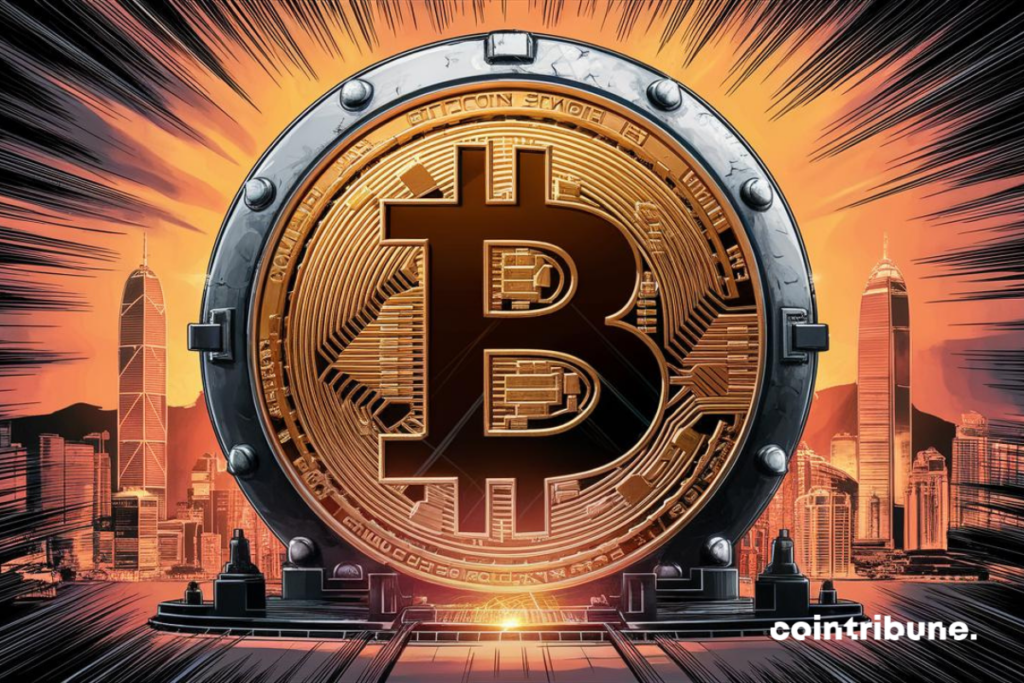Former U.S. President Trump recently gave a speech at the U.S. Bitcoin Summit, sharing his views on Bitcoin. Bitcoin and Web3 have already gained the attention and development of countries around the world, and Hong Kong is also actively becoming a hub to promote technological… pic.twitter.com/e1UFCb6g1q
— Johnny Ng 吴杰庄 (@Johnny_nkc) July 28, 2024
Hong Kong Eyes Strategic Bitcoin Reserve
full version at cointribune
Game theory is at work. The promise of a strategic bitcoin reserve made by Donald Trump is already echoing in Hong Kong.
A Strategic Reserve
Hong Kong is following in the footsteps of the United States. After launching Bitcoin ETFs, the most western of Asian cities could also create a strategic bitcoin reserve.
As a reminder, Hong Kong is one of the Chinese special administrative regions (SARs). An SAR is a relatively autonomous region whose legal, administrative, and judicial systems are distinct from those of the rest of the country.
Hong Kong thus has its own Parliament, and one of its deputies, Johnny Ng, responded to the speech by Trump at the Nashville Bitcoin conference:
“Regarding the possibility of bitcoin becoming an official financial reserve for a country or region, I think it is worth considering. Global acceptance of bitcoin continues to grow, and bitcoin is seen by the public as ‘digital gold.’ Therefore, in the future, it is possible to consider including bitcoin in strategic financial reserves.”
In other words, China will not remain indifferent if Donald Trump wins in November. The United States will then constitute a reserve of one million BTC in addition to the 210,000 seized by the US judiciary.
China possesses an equivalent amount of BTC seized by its judiciary. It makes sense to keep them since the Middle Kingdom accumulates colossal quantities of metal gold.
The growing interest in bitcoin by states suggests that the initial panic towards this monetary UFO has dissipated. It is no longer perceived as an existential threat to the monetary system.
Bitcoin No Longer Terrifies Banks
Things are shifting. The world’s largest bank – the Industrial and Commercial Bank of China (ICBC) – recently classified bitcoin as “digital gold“.
“Bitcoin maintains a rarity similar to that of gold through a mathematical consensus. It also provides a solution to the problems of division, authenticity, and transport of gold. Its monetary attributes [medium of exchange] are gradually weakening, while its asset attributes [store of value] are constantly strengthening,” it wrote in a report published in June.
Indeed, bitcoin is not designed for small transactions. Admittedly, the Lightning Network can multiply its seven small transactions per second, but it’s not enough.
The more demand increases, the less viable it will be as a means of payment. Bitcoin will never be competitive against Visa and Mastercard. Transaction and conversion fees are too significant.
[Increasing block size to compete with Visa would mean ruining decentralization. It shouldn’t be done.]
Banks understand that bitcoin will not replace them. The loan system based on money created ex nihilo will always be more competitive than loans from a non-elastic currency like bitcoin. Each has its advantages…
That said, the fact is that mainland China remains officially hostile to bitcoin for now. All exchanges have been shut down.
Beijing is sticking to its strategy of limiting capital outflows. The goal is to prioritize domestic investments. But now that the country is in industrial overcapacity, why not relax capital controls and allow foreign asset acquisitions?
The planets seem to be aligning. If the United States embraces bitcoin, game theory tells us that all countries in the world will follow suit. This would be very promising for its valuation.



